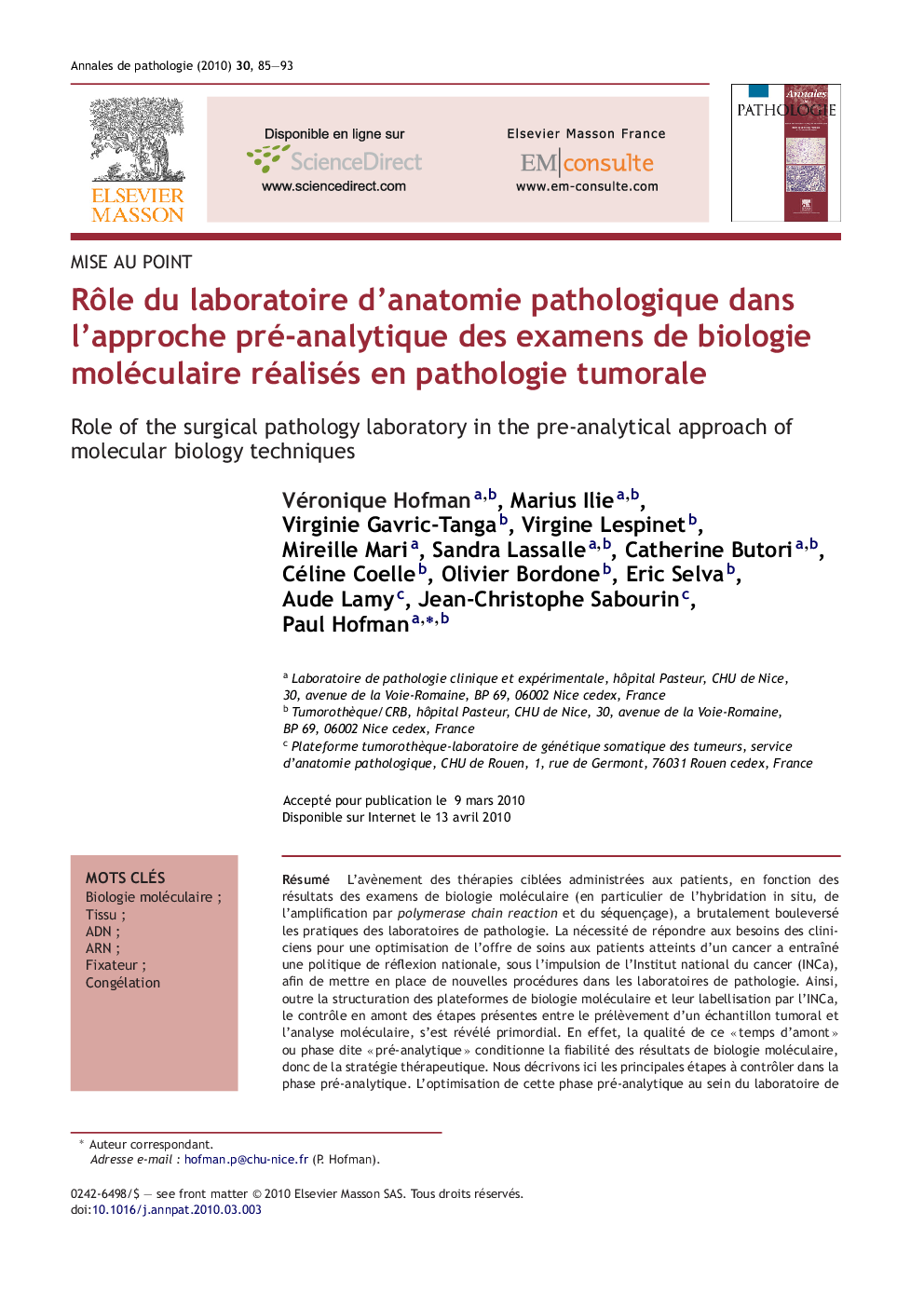| Article ID | Journal | Published Year | Pages | File Type |
|---|---|---|---|---|
| 4128860 | Annales de Pathologie | 2010 | 9 Pages |
Abstract
The advent of the targeted cancer therapies administered to patients, according to the results of molecular biology techniques (in particular, in situ hybridization, “polymerase chain reaction” amplification and sequencing), has modified the practice of the surgical pathology laboratories. The necessity to answer to the needs of physicians for optimizing the medical care for patients who develop cancer has led to a policy of national debate, spurred by the National Institute of Cancer (INCa), in order to implement new procedures in the pathology laboratories. Thus, in addition to the structuring of molecular biology platforms and their labeling by INCa, the upstream control of the steps present between resection of tumor samples and molecular analysis has proved to be crucial. Indeed, the quality of this upstream time, called “pre-analytical” phase, determines the reliability of the molecular biology results and therefore the therapeutic strategy. We describe here the main steps to be checked in the pre-analytical phase. The optimization of this pre-analytical phase within the surgical pathology laboratory aims to reduce or render insignificant the risk of errors of molecular biology tests. These errors can indeed lead to false negative or false positive results whose therapeutic consequences can be particularly harmful to patients with cancer.
Related Topics
Health Sciences
Medicine and Dentistry
Pathology and Medical Technology
Authors
Véronique Hofman, Marius Ilie, Virginie Gavric-Tanga, Virgine Lespinet, Mireille Mari, Sandra Lassalle, Catherine Butori, Céline Coelle, Olivier Bordone, Eric Selva, Aude Lamy, Jean-Christophe Sabourin, Paul Hofman,
